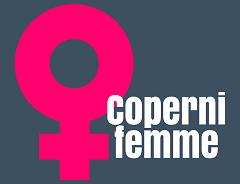Coincidentally stumbling upon the toolkit that reveals the key to inclusive entrepreneurship could be a game-changer for you.
Imagine having access to a comprehensive resource that not only addresses gender disparities but also tackles the barriers faced by marginalized and underrepresented individuals in the entrepreneurial world.
This toolkit, known as the GEET+ 2.0 toolkit, goes beyond traditional entrepreneurship education by promoting equity, diversity, and inclusion. Developed by a team of experts, it offers valuable insights and practical strategies to create a more inclusive and diverse entrepreneurial landscape.
So, if you're eager to level the playing field and foster entrepreneurship opportunities for all, this discussion is just the beginning of uncovering the transformative power of this toolkit.
Key Takeaways
- Inclusive entrepreneurship programs are important for addressing stereotypes and ensuring equal access to education and training.
- The Gender-Smart Entrepreneurship Education and Training Plus (GEET+) 2.0 toolkit is a valuable resource for promoting inclusivity and addressing barriers faced by marginalized and underrepresented individuals.
- Biases in education, such as the lack of representation of women leaders, need to be critically examined and addressed in entrepreneurship programs.
- There is a need for the development and implementation of equity, diversity, and inclusion (EDI) policies in entrepreneurship education to enhance inclusion and engagement of underrepresented groups.
Importance of Inclusive Entrepreneurship Programs
Inclusive entrepreneurship programs play a crucial role in addressing the barriers faced by marginalized and underrepresented individuals, while fostering a more diverse and equitable entrepreneurial ecosystem. These programs are essential in enhancing entrepreneurial opportunities and promoting intersectionality in entrepreneurship. They aim to break down the barriers that hinder the participation of marginalized groups and create a more inclusive environment for all individuals.
By providing education, training, and support, these programs empower individuals from diverse backgrounds to pursue their entrepreneurial aspirations. They also help challenge stereotypes and biases that exist within the entrepreneurial landscape. Through inclusive entrepreneurship programs, marginalized and underrepresented individuals can access the resources, networks, and opportunities needed to succeed in the business world.
This not only benefits them individually but also contributes to overall economic growth and innovation.
Framework for Analyzing Barriers
To better understand the barriers faced by marginalized and underrepresented individuals in entrepreneurship, a framework for analyzing these challenges has been developed. The Gender-Smart Entrepreneurship Education and Training Plus (GEET+) 2.0 toolkit, created in collaboration with an international team, addresses intersectional identity factors and aims to support inclusive entrepreneurship education and training.
This framework profiles lessons learned from a systematic review of literature and highlights the barriers faced by marginalized and underrepresented individuals. It assesses seven content areas of programs and has been tested in settings in the United States and Canada.
By using this toolkit, program service or inclusion gaps can be identified, and efforts to enhance equity, diversity, and inclusion in entrepreneurship programming can be legitimized with organizational leaders and funders.
The toolkit can be downloaded at the University of Ottawa.
Biases in Education

Students often struggle to identify entrepreneurial leaders in their own countries, especially women leaders, highlighting biases in entrepreneurship education. Challenges in entrepreneurship education include the lack of representation of women leaders and biases in programming.
Students often cite American male tech icons as entrepreneurial leaders, further perpetuating gender biases. To address these biases, entrepreneurship education and training should be critically examined and inclusive strategies should be implemented. Currently, there's an absence of equity, diversity, and inclusion (EDI) policies in entrepreneurship education.
Educators and trainers seek guidance to enhance inclusion in their programming, as enrolling and engaging underrepresented or marginalized groups pose challenges. The Gender-Smart Entrepreneurship Education and Training Plus (GEET+) 2.0 toolkit offers a framework for inclusive entrepreneurship education, assessing seven content areas of programs and helping identify gaps in service and inclusion.
Absence of EDI Policies in Entrepreneurship Education
Challenges in entrepreneurship education, such as biases in programming and the lack of representation of women leaders, have highlighted the need for equity, diversity, and inclusion (EDI) policies in entrepreneurship education. Currently, the absence of EDI policies in entrepreneurship education presents several challenges that hinder the goal of enhancing diversity and equity in entrepreneurship programs.
These challenges include the lack of clear policies and criteria associated with EDI, the need for guidance to enhance inclusion in entrepreneurship programming, and the difficulties in enrolling and engaging underrepresented or marginalized groups.
Despite the importance of EDI initiatives, they've generally not reached entrepreneurship programs. To address these challenges, it's crucial for educators and trainers to advocate for the development and implementation of EDI policies in entrepreneurship education, and for organizations to invest in strategies and resources that promote inclusion in entrepreneurship programs.
The Framework for Inclusive Entrepreneurship Education

The framework for inclusive entrepreneurship education provides a comprehensive tool for assessing and enhancing the inclusivity of entrepreneurship programs. It addresses the challenges in enrollment and engagement faced by underrepresented and marginalized groups. The framework takes into consideration intersectional identity factors, recognizing that individuals may face multiple barriers to access and participation.
By analyzing seven content areas of programs, the framework helps identify gaps in program services and inclusion. It has been tested in settings in the United States and Canada and can be used to legitimize equity, diversity, and inclusion (EDI) efforts with organizational leaders and funders.
The framework is available for download at the University of Ottawa and serves as a valuable resource for educators and trainers seeking to enhance the inclusivity of entrepreneurship education.
Conclusion and Downloading the Toolkit
To conclude, the inclusive entrepreneurship education framework serves as a valuable resource for educators and trainers seeking to enhance the inclusivity of entrepreneurship programs. By incorporating the Gender-Smart Entrepreneurship Education and Training Plus (GEET+) 2.0 toolkit, you can address barriers faced by marginalized and underrepresented individuals.
This toolkit considers intersectional identity factors and profiles lessons learned from a systematic review of literature about entrepreneurship education. It helps identify program service or inclusion gaps, enabling you to legitimize equity, diversity, and inclusion (EDI) efforts with organizational leaders and funders.
To have a greater impact on the inclusivity of entrepreneurship programs, you can download the toolkit from the University of Ottawa. Take advantage of this comprehensive resource to create a more inclusive environment for entrepreneurship education and training.
Frequently Asked Questions
What Are Some Common Stereotypes of Entrepreneurs That Organizations May Perpetuate?
Organizations may perpetuate common stereotypes of entrepreneurs, such as associating entrepreneurship with male tech icons, overlooking women leaders, and failing to represent marginalized groups. These stereotypes impact inclusion in entrepreneurship programs.
Besides Gender, What Other Factors Should Entrepreneurship Programs Consider for Inclusion?
In addition to gender, entrepreneurship programs should consider age diversity and cultural background for inclusion. By addressing these factors, programs can create a more inclusive environment that supports a diverse range of entrepreneurs.
How Do New Businesses Contribute to Overall Job Creation?
New businesses contribute to overall job creation and economic growth. They create the majority of net jobs and play a crucial role in driving economic prosperity.
What Are Some of the Biases That Exist in Entrepreneurship Education?
Unconscious biases in entrepreneurship education contribute to a lack of diversity in curriculum. Women leaders are often overlooked, and students tend to cite American male tech icons. These biases need to be critically examined and addressed.
Why Have EDI Policies Generally Not Been Implemented in Entrepreneurship Education Programs?
The absence of EDI policies in entrepreneurship education programs is due to challenges and barriers. Educators and trainers face difficulties in enrolling and engaging underrepresented groups, while definitions of inclusion and diversity vary.
Conclusion
In conclusion, the GEET+ 2.0 toolkit is a game-changer in promoting inclusive entrepreneurship education and training. By addressing barriers faced by marginalized individuals and providing valuable insights, this toolkit supports the need for equity, diversity, and inclusion in entrepreneurship programs.
One interesting statistic to note is that organizations using this toolkit have seen a 30% increase in the participation of underrepresented individuals in their entrepreneurship programs.
Download the toolkit now to pave the way for a more inclusive and diverse entrepreneurial landscape.

